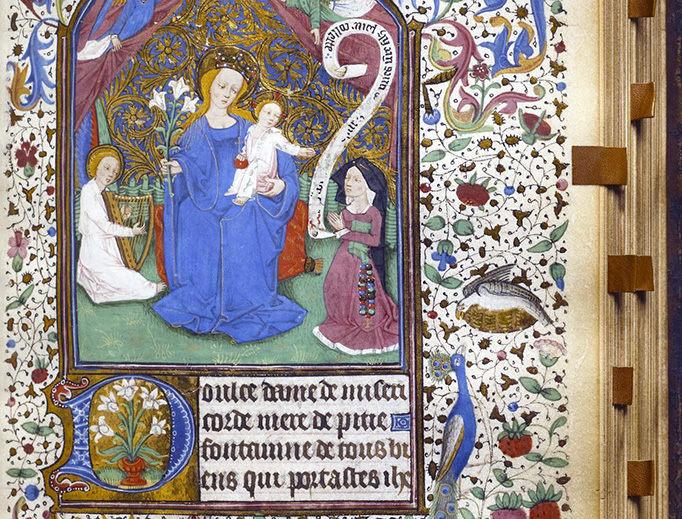



(For example, Scripture tells us that Our Lord hung on the cross from the sixth to the ninth hour, that is, from 12:00 to 15:00.) Vespers is said as dusk falls, followed by Compline, which completes the day and the cycle of hours. Prime, Terce, Sext, and None are prayed during the first, third, sixth, and ninth hours of daylight. If one observes the ancient times, Matins and Lauds are prayed before sunrise. The Divine Office is divided into eight Hours, according as God is to be praised continuously throughout the hours of the day. The master who teaches us in it is the Holy Ghost, the source of all truth it is also the Prophets, Apostles, and Saints of God." Vincent de Paul (1581?-1660) tells us that "the Divine Office is the school of all virtues. These readings follow the Church's calendar of liturgical seasons and feasts of the Saints. The psalms, the divinely-inspired poetical prayers, principally of King David, have always been the center of the Church's liturgical worship, just as they were at the temple during Old Testament times.īesides the psalms, there are readings from Sacred Scripture, commentaries on Sacred Scripture from the Fathers and Doctors of the Church, and short accounts of the lives of the Saints. The Divine Office itself is made up of the 150 psalms of the Old Testament, so divided throughout the seven days of the week that all the psalms are recited in one week. Pius X and Pope Pius XII, have encouraged the laity to participate in saying the Office as well and for this reason have bestowed rich indulgences upon those of the faithful who do so. From this fact, it is called the Office, the word in this sense coming from the Latin word officium, meaning duty. To give praise and glory to God throughout the hours of the day in the name of the Church, the clergy are placed under the duty of praying it daily. This same Office is chanted by monks in traditional monasteries and nuns in traditional convents, and is recited by members of lay orders and devout Catholic faithful. In fact, the Mass is part of the Divine Office, and they are so intertwined in the public liturgy of the Church that one is really incomplete without the other. The most important prayer that the Church offers to Almighty God after the Holy Sacrifice of the Mass is the Officium Divinum, or Divine Office, contained in a liturgical book called the Breviarium Romanum, or Roman Breviary. Traditional Latin Mass, Divine Office & Sacraments The Divine Office TRADITIO Traditional Roman Catholic Internet Site


 0 kommentar(er)
0 kommentar(er)
